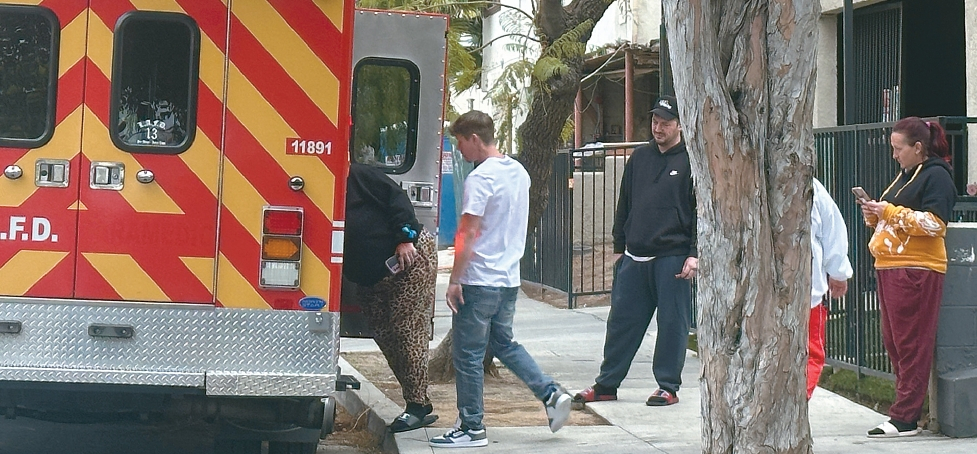“Drug rehabilitation is important, but why not take into account the damage to the neighborhood? Do they have to leave the homes they’ve lived in for 20 years?” voiced Hyunsook Oh, 66, who owns an eight-unit rental house near Hoover Street and 12th Street, south of Koreatown, expressing her frustration.

It was two years ago that the drug rehabilitation facility suddenly moved into what had been a relatively quiet street after a barrier was erected on South Pico Boulevard to protect the residential neighborhood. Initially, new buildings were constructed on the site of burned-out private homes, and Airbnb rentals attracted tourists. However, the area soon transformed into a rehabilitation center for drug addicts.
The facility, operated by a national chain company with a license from the city, has expanded in size over time and now accommodates a total of 80-90 people across three buildings. With the increasing number of residents, problems began to arise.
Residents have made neighbors nervous with their drinking parties and loud noises, often gathering between the buildings in groups of 30 to 40 to smoke cigarettes or marijuana, filling the streets with heavy smoke.
The impact has also been felt by a Korean-American-owned building across the street, where residents report fights in the evenings and frequent police dispatches. “Some families have already moved out after there was a shooting,” shared one Korean-American woman residing in the affected apartment building, noting concerns about the safety of children in the area.
Oh hired a lawyer last month and sent a letter to the facility threatening legal action if the nuisance persisted, but complaints of marijuana smoke, cigarette odor, and late-night drinking parties continued.
Neighbors lamented that when the police are called, they often only issue warnings and take minimal action. Although the rehabilitation center has apologized and claimed to be exercising caution, no fundamental measures have been taken.
“We’ve had a few noisy residents, but for the most part, it’s been well managed,” said Kyle Brounen, the facility’s manager, offering apologies to surrounding residential properties and urging patience and understanding.
However, nearby residents question whether the rehabilitation center underwent proper vetting. “If the facility is operating with the support or permission of the city or county government, they should at least notify the neighbors and take the necessary steps,” remarked Oh, highlighting the lack of transparency in the process.
The LA City Council allocated $7.8 million in August to support the facility, signaling a favorable attitude toward rehabilitation center expansion and permitting. Residents are also unsettled by rumors linking the company behind the rehabilitation center to the construction of a multi-unit residential facility on a nearby block.
The facility’s approval reportedly occurred during the term of Councilman Gil Cedillo, the predecessor of District 1. The Korea Daily reached out to the office of District 1 Councilwoman Eunisses Hernandez for clarification on the permit process, background, and residents’ complaints but did not receive a response as of April 5 afternoon.
BY BRIAN CHOI, HOONSIK WOO [ichoi@koreadaily.com]




